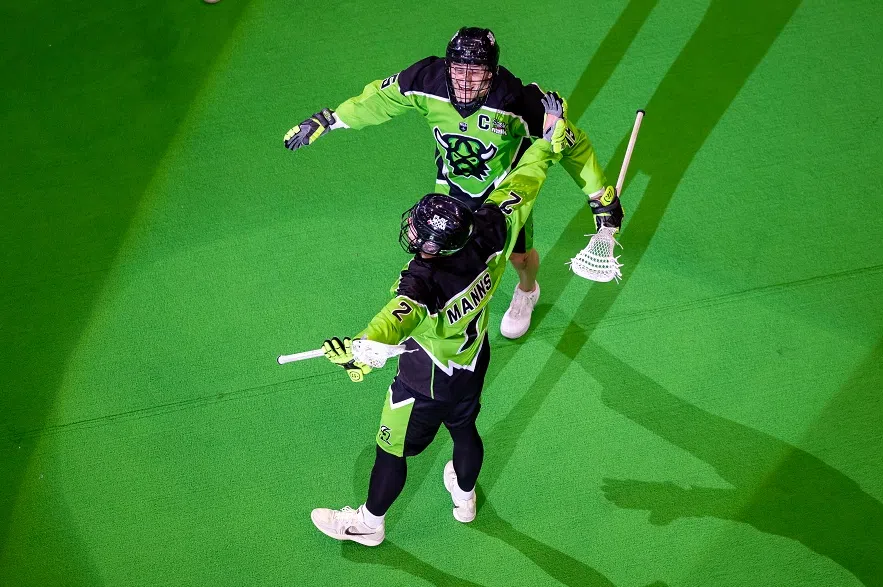OTTAWA — Canada is not getting any COVID-19 vaccine doses from Pfizer-BioNTech next week and the federal government says it can’t tell provinces exactly how many doses to expect over the next month.
While there are some signs the relentless second wave of the pandemic may be easing in the biggest provinces, with numbers trending down in Quebec and Ontario, chief public health officer Dr. Theresa Tam said the number of people in hospital and critical care is rising.
Canada also passed 18,000 deaths on Monday.
Tam said as the infections go up and down, Canadians are constantly being hit with the reality that our “actions have consequences.”
“Every time we get a little too tired or a little too excited about holidays or think that vaccines could give us a quick shortcut, we are met with a new spike in activity as COVID-19 tries to take the lead again,” Tam told a news conference Tuesday.
More than half a million Canadians have now been given at least one dose of a COVID-19 vaccine, but the rollout of the vaccines is slowing down.
U.S. drugmaker Pfizer told Canada on Friday it’s cutting deliveries in half over the next four weeks, as it slows production at its facility in Belgium for upgrades that will eventually allow it to produce more doses.
Maj.-Gen. Dany Fortin, the military commander co-ordinating the vaccine rollout for the Public Health Agency of Canada, said Tuesday this means Canada will be getting 82 per cent of expected doses this week and nothing at all next week.
“Our entire shipment is deferred,” said Fortin.
Canada was to get 417,000 doses over the next two weeks, and will now get about 171,000.
Fortin said Canada’s shipments will “pick back up again” the first week of February but he doesn’t expect details until Thursday.
The news prompted Ontario Premier Doug Ford to lash out at Pfizer and appeal to U.S. president-elect Joe Biden, who will be sworn into office Wednesday, to help Canada out.
Pfizer is also producing its vaccine in Michigan, but doses made in the U.S. are only being shipped within that country. Every other country, including Canada, is getting doses from the facility in Belgium.
Ford is asking Biden to share one million doses with Canada. He also said he’s not angry at the federal government for the delivery delays, but Prime Minister Justin Trudeau needs to put pressure on Pfizer CEO Albert Bourla.
“If I was in (Trudeau’s) shoes … I’d be on that phone call every single day,” Ford said.
“I’d be up that guy’s yin-yang so far with a firecracker he wouldn’t know what hit him … I would not stop until we get these vaccines.”
Ontario is among the provinces retooling their vaccine programs to account for getting fewer doses than expected, with some cancelling or halting new appointments and others looking at delaying second doses.
Trudeau said federal Procurement Minister Anita Anand has been on the phone with the company every day. He was less specific about which phone calls he has made himself or whether he has attempted to contact Bourla directly.
Trudeau said this temporary slowdown in deliveries will not affect Canada’s goal to vaccinate every Canadian who wants a shot in the arm by the end of September.
B.C. Health Minister Adrian Dix said the interruption would mean the province will use the vaccine it is getting this week to complete first doses for long-term care residents and to start second doses for those who got their first shot in December.
He said second doses are crucial to the strength of the program, and B.C. remains committed to a 35-day interval between doses. Other provinces have chosen to extend their second-dose time frames.
Pfizer Canada spokeswoman Christina Antoniou told The Canadian Press “multiple countries around the world will be impacted in the short term” but cannot say which countries or what the effect outside Canada will be. The United Kingdom is expecting some slowdowns as well.
European Commission President Ursula von der Leyen was on the phone to Bourla on Friday when Europe was informed it would also be getting fewer doses. Europe’s dose delays were reduced to one week after that.
Anand said she told Pfizer on the weekend she expects Canada to be treated equitably in the shipment slowdowns, and she got assurances that would happen.
Fortin said the cutbacks will affect some provinces more than others because of the way the vaccines are packaged, but that deliveries will even out eventually.
Quebec and Ontario both reported significant declines in cases Tuesday, with Quebec at 1,386 new cases and Ontario at below 2,000 for the first time in weeks. Ontario Health Minister Christine Elliott cautioned a technical glitch likely undercounted new cases in Toronto.
Manitoba, which recorded 111 new cases, is also looking at easing restrictions on gatherings and businesses by the end of the week, including allowing non-essential stores and hair salons to reopen for the first time since mid-November.
Saskatchewan, with both the highest rate of active cases and new daily cases per capita in the country, was preparing to get tougher on restaurants and bars flouting COVID-19 rules. But Premier Scott Moe said he’s not ready to shut down all businesses.
Meanwhile, Trudeau urged Canadians to cancel near-future plans for international trips.
Trudeau said Canadians have the right to travel but the government could at any time, and without warning, enforce new restrictions on those returning to Canada.
New variants of the virus that causes COVID-19 add a level of uncertainty that could affect decisions about how to handle international arrivals. Potentially worrisome variants have been detected in the U.K., South Africa and Brazil.
Quebec Premier Francois Legault urged Trudeau to ban non-essential international flights entirely.
The Public Health Agency of Canada has documented 183 flights arriving in Canada from abroad since Jan. 4, on which at least one passenger had COVID-19. Sixty-three of those flights arrived from the U.S.
That includes 78 flights from popular winter resort destinations and U.S. cities, and four flights from London since a temporary ban on incoming flights from the U.K. was lifted Jan. 6.
Trudeau would not say what other measures he is considering, but noted travellers must present negative COVID-19 tests before boarding planes and must quarantine for two weeks after arriving in Canada.
This report by The Canadian Press was first published Jan. 19, 2021.
Mia Rabson, The Canadian Press







